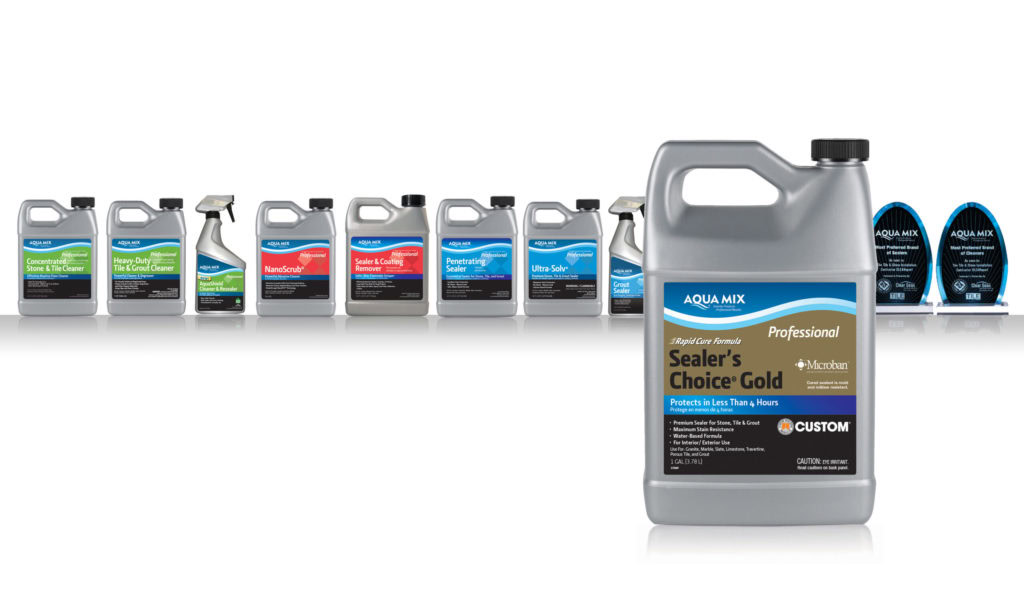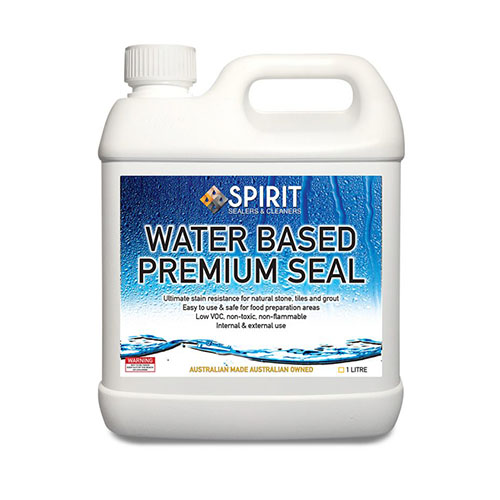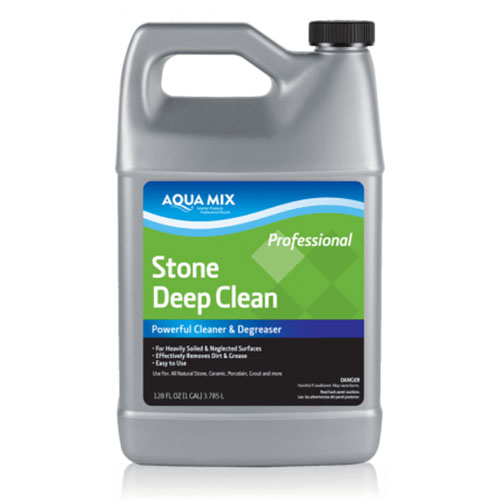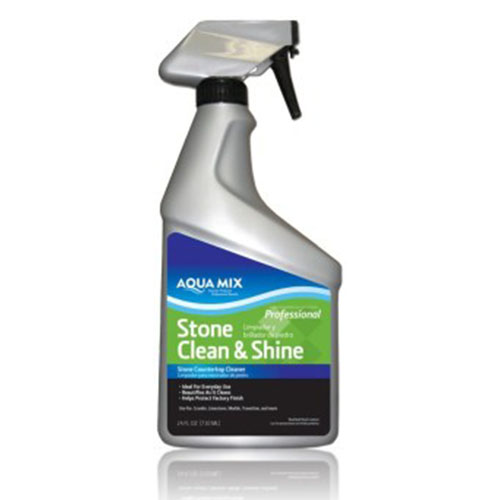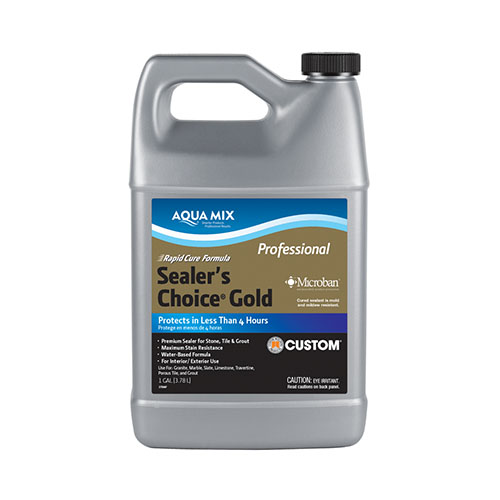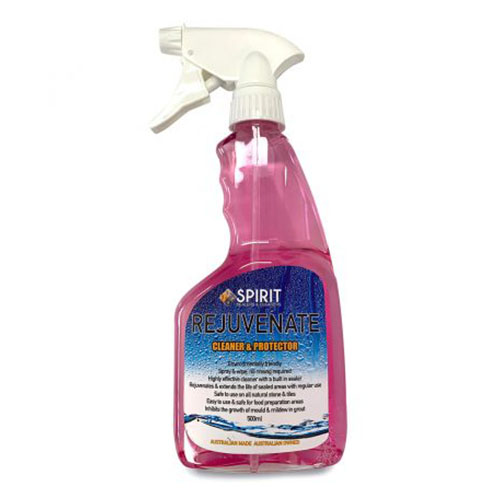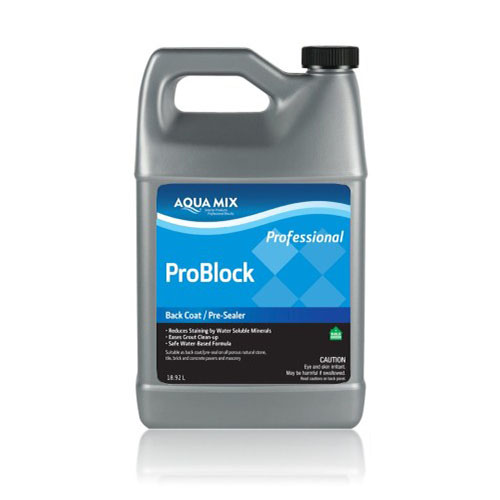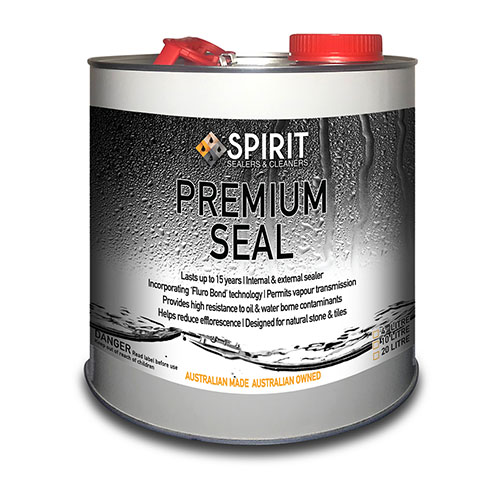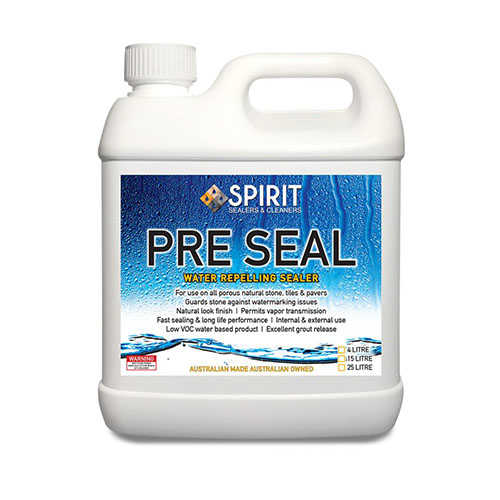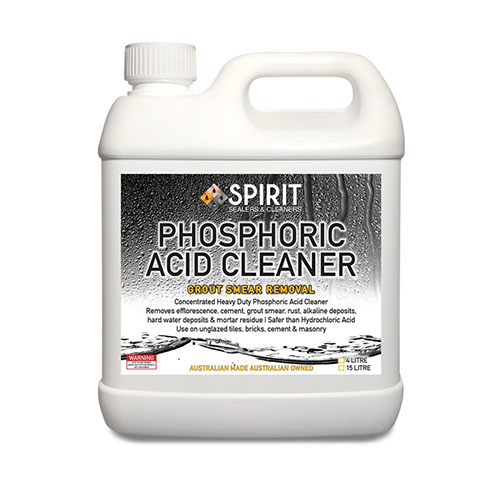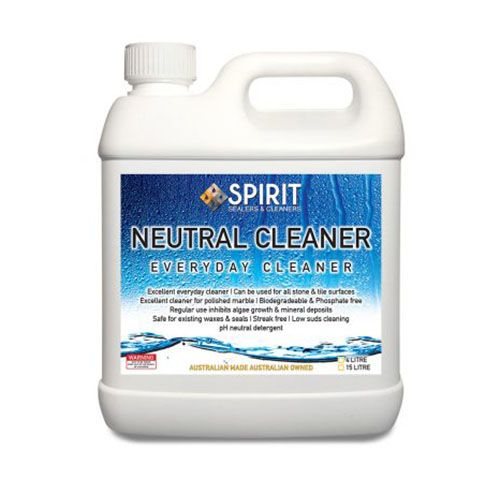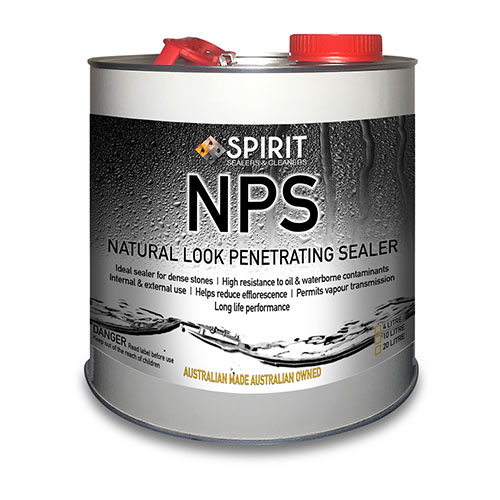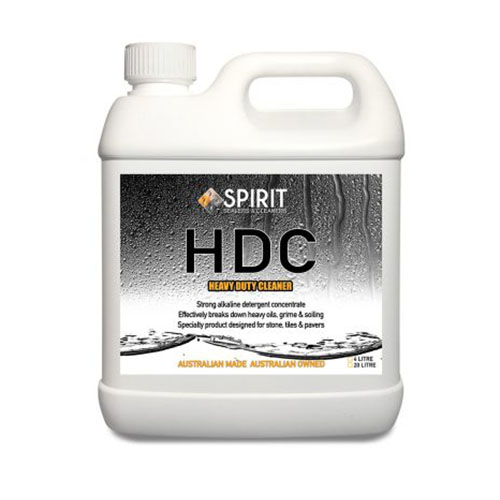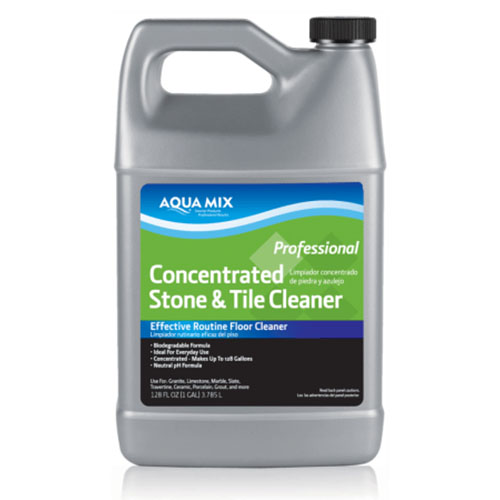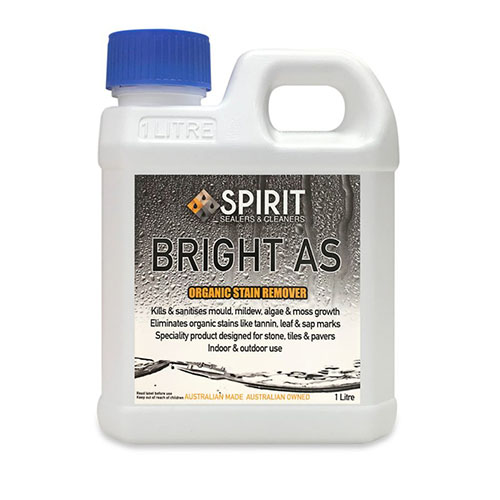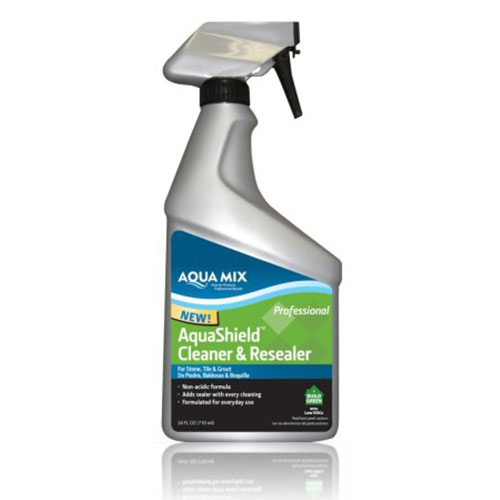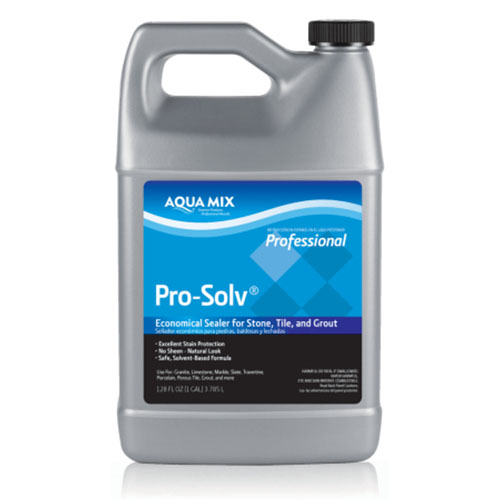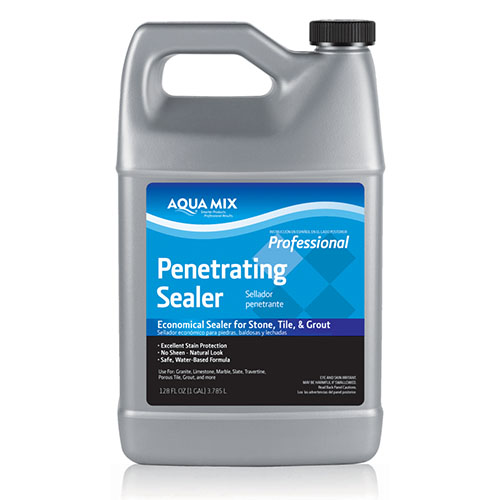7 Natural Stone Cleaning and Maintenance Tips
We love helping you pick the perfect natural stone tile or benchtop for your home, but we also want to see your stone last you for years to come. One of our favourite stone cleaning and maintenance brands is Aqua Mix; they have been around for over 40 years and they have the largest selection of pre-sealers, sealers and cleaners. Aqua Mix’s very own CJ was kind enough to help us answer some of our clients most common stone maintenance questions.
1. Is pre-sealing always important?
Firstly, it is important to clarify why we pre-seal stone. Natural stone is a reactive material, some stone types can have adverse reactions to the installation process, more commonly when cementitious adhesives and grouts are used. Some of these reactions can be water soluble minerals staining the stone (picture framing) efflorescence, and soluble mineral contamination such as iron blooming. Sealing all six sides of the stone reduces the chances of any discoloration, efflorescence, and mineral reactions within the stone.
The stone type, porosity and installation method determine whether pre-sealing will be required. This should always be discussed with your installer prior to installing the stone. It should also be noted that not all sealers can be used as a pre-sealer. The sealer must still provide adequate vapour transmission to the stone (breathable) and not interfere with the adhesive bonding process. Aqua Mix has developed a pre-sealer specifically designed to manage these installation issues and has been extensively tested to not interfere with the adhesive bonding to the stone.
2. Can I seal tiles myself?
Yes. Most sealers applied to natural stone are penetrating ones, these are very easy to apply especially if they are water based. Solvent based products are usually applied by a professional as they require special safety equipment. Sealing your tiles helps with stone cleaning and maintenance.
3. How often should I seal my tiles?
Sealers do not have a predetermined lifespan, their longevity greatly depends on the hardness of the material it has been applied to, the amount of use and how the surface is maintained. Aqua Mix has a range of sealers that suit different requirements that last in the ranges of 3-15 years.
4. Should I seal my porcelain tiles?
We generally do not seal porcelain tiles unless they stain, most high-quality porcelain tiles do not stain. If unsure contact your tile supplier as they will be able to confirm whether sealing is required.
5. What is Aqua Mix’s best-selling product and why?
Aqua Mix Sealer’s Choice Gold – Rapid Cure is our best-selling product. This water-based natural look sealer has been the industry go-to product for protecting stone and tile. It has a long history of being the most dependable sealant for most stone and tile types. It also has some unique industry leading features such as rapid curing (cures in less than 4 hours) and has built in MicroBan which make the sealer mould and mildew resistant.
6. How often should I deep clean my natural stone?
Routine mopping can cause a build-up of detergent residue and soiling over time. This is because the surface is not being rinsed thoroughly each time. Periodically the stone and grout will require a deep clean (AKA soak, scrub & rinse) to remove this build-up. The frequency of this really depends on the usage of the area. For example, a kitchen floor or shower area may require this process every month, while a hallway or dining room may only require a deep clean every 6-12 months.
7. Is it necessary to use any special tools for cleaning natural stone?
Stone is generally softer than porcelain or ceramic tile. It is recommended to use high-quality microfibre mops, cloths and when scrubbing only use white nylon scouring pads to prevent scratching the stone.

